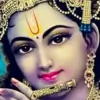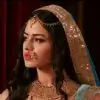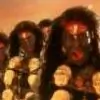Hello sir, we're lucky to have a veteran like you here patiently clearing our doubts. I wish to know your views on my below confusions.
This is cited from the context of all Gods and sages etc appearing in two sides of Karna & Arjuna, in the Mahabharata battle. At this, Brahman and Isana replied unto the chief of the celestials, saying-- "The victory of the high souled Vijaya is certain, of that Savyasaci who gratified the eater of sacrificial libations in the forest of Khandava and who, coming to heaven, rendered assistance to thee, O Sakra! Karna is on the side of the Danavas. It is proper, therefore, that he should meet with defeat. By this, without doubt, the purposes of the gods will be achieved. One's own business, O chief of the celestials, should always be important."
Again when Arjuna aims Anjalika-- " Indeed, seeing that weapon raised (for being sped) in that dreadful battle, the Rishis loudly cried out,"Peace be to the universe!".
My confusions are the following.
1. Why did the Gods want Karna to be killed at any cost? I can understand Indra, Vayu, Yama and Ashwins... But why all other Gods? Even Ishaana and Brahman wanted the same. As far as my little knowledge goes, Karna always respected, prayed and never offended any of them. Then why they all wanted him to die?
2. What did Ishaana and Brahman mean by saying 'Karna was on the side of Daanavas'? How can we consider Kauravas to be Daanavas? Had Karna ever made an ally with any Daanava for the battle?
3. What was the purpose or business of the Gods which was impossible only because of Karna was alive and for which all of them unanimously wished for his death? Is it not the duty of Gods to protect their devotee? As I said before, I don't remember him going against them in any instance.
4. Karna always did Daana to every brahmin, rishi, sanyasi etc..respected them, sheltered them, obeyed them... Still what could be the reason they all turned against him? Had he ever insulted them that they all together wished for his death for the peace of universe?
All citations are taken from KMG translation of Mahabharata. Kindly forgive my any wrong words considering the ignorance of a beginner and show light on the above darkness.

































